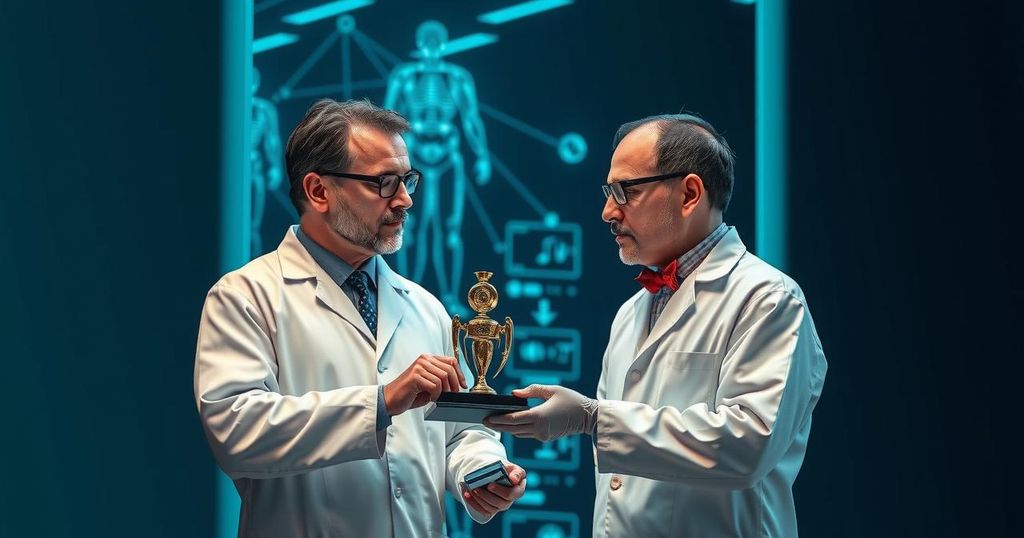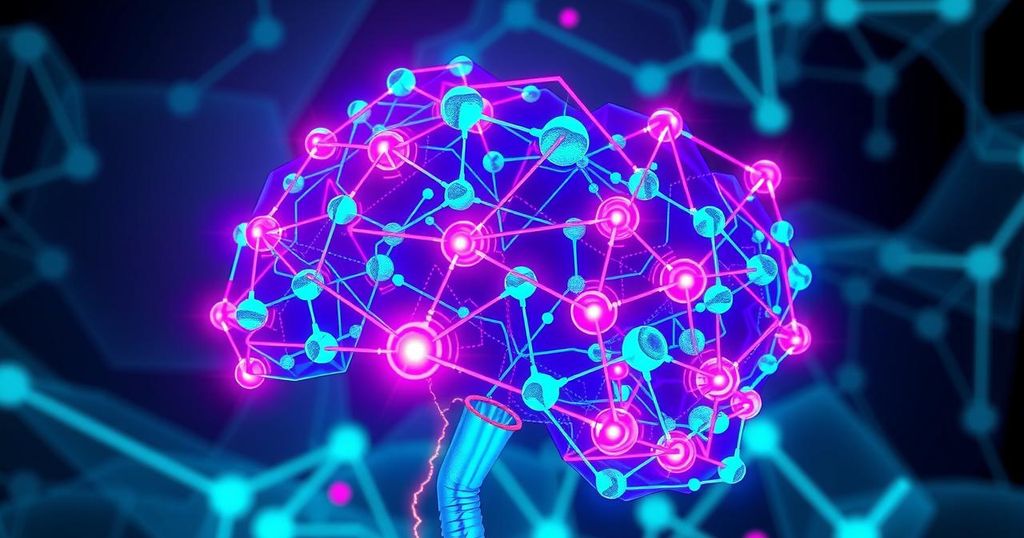Nobel Prize in Physics Honors Innovative A.I. Research by Two Pioneers
John J. Hopfield and Geoffrey E. Hinton received the Nobel Prize in Physics for their pioneering work in artificial intelligence through machine learning and neural networks, revolutionizing how computers process information akin to human cognition. This recognition highlights the critical role of AI in various sectors, especially scientific research, while also raising concerns about its societal implications.
In a groundbreaking recognition of artificial intelligence, the Nobel Prize in Physics was awarded to John J. Hopfield and Geoffrey E. Hinton for their pioneering work in machine learning and artificial neural networks. Their discoveries mark a monumental leap in how computers emulate human cognitive processes, thus laying a robust foundation for advancements in AI technology that impact various fields, especially in scientific research and material creation. The Nobel committee underscored these achievements as vital contributions to addressing society’s complex challenges, demonstrating a transformative shift in the digital landscape.
The essence of the award transcends mere academic achievement; it celebrates the intersection of technology and human intellect. By utilizing learning algorithms inspired by the brain’s neural structure, Hopfield and Hinton have illuminated pathways for enhanced data processing capabilities in machines, amplifying their role in revolutionizing industries. Their work is especially significant in physics, where AI tools facilitate the innovative design of new materials, creating ripples of impact across sectors and realms of research.
The award of the Nobel Prize in Physics for artificial intelligence highlights the increasing importance of AI in contemporary life. It reflects a growing acknowledgment that advances in machine learning and neural networks are redefining our understanding of computation. These technologies, inspired by human cognitive functions, are reshaping scientific methodologies, enhancing learning, and enabling breakthroughs in fields that require intricate analysis of massive data sets. As AI becomes more ingrained in everyday work and life, its implications on society and various industries become even more urgent to examine.
The Nobel Prize awarded to Hopfield and Hinton underscores the significant strides made in artificial intelligence through their innovative research. As AI technologies evolve and intertwine with human capability, they promise to propel advancements in various sectors, notably healthcare and material science. The caution expressed by Dr. Hinton regarding potential challenges serves as a reminder of the responsibility accompanying such transformative technology—a dichotomy of enormous potential and significant risk that society must navigate thoughtfully.
Original Source: www.nytimes.com




Post Comment